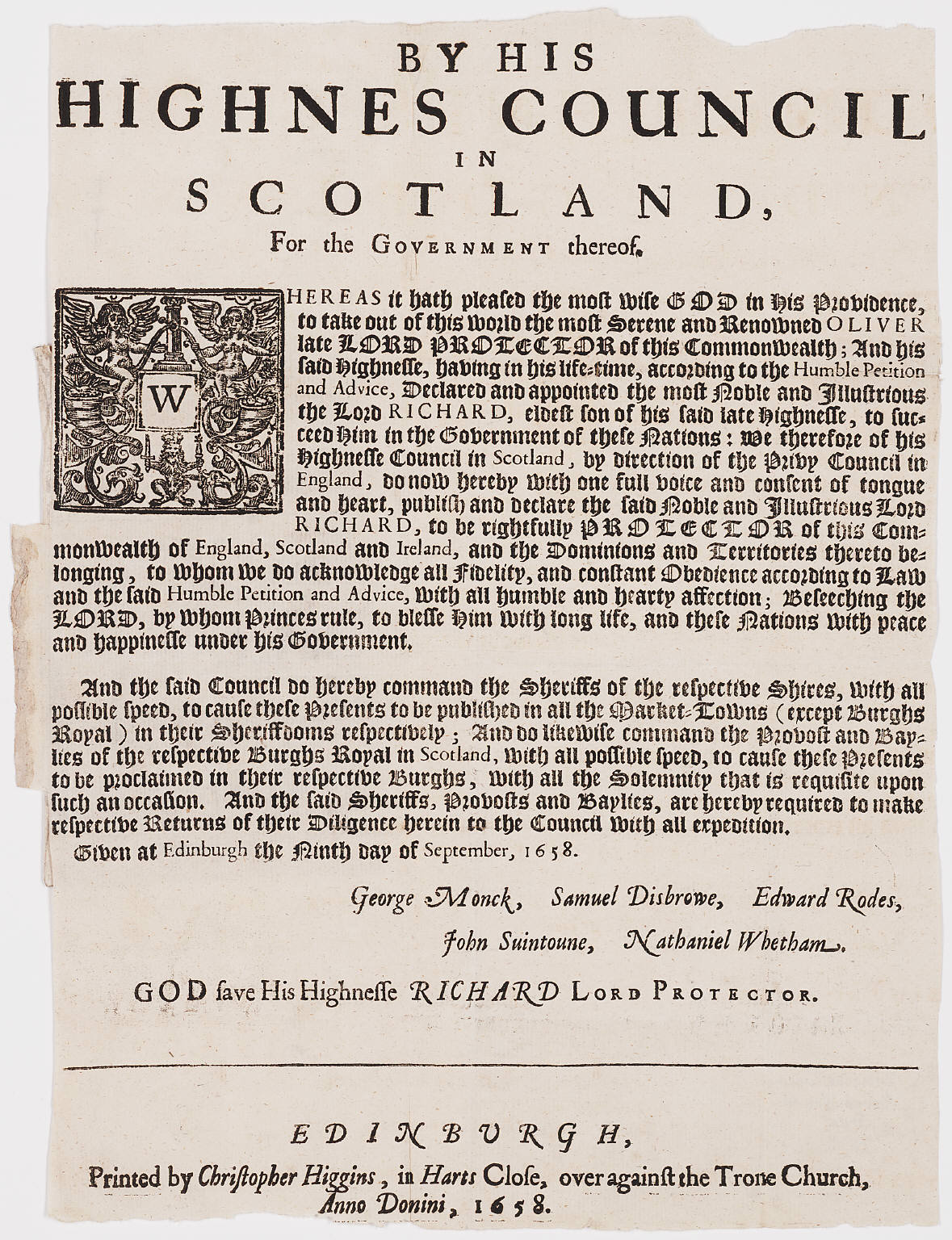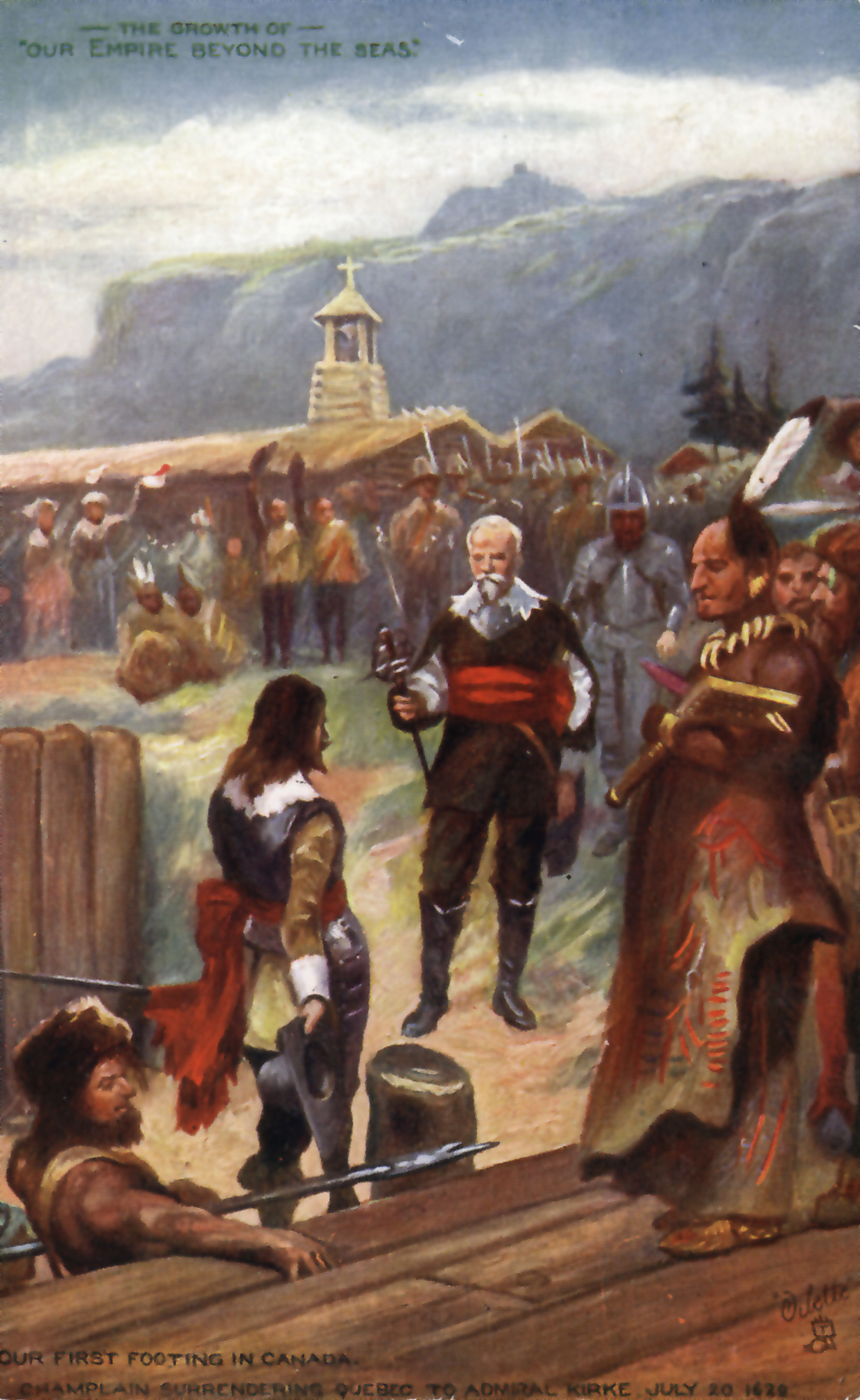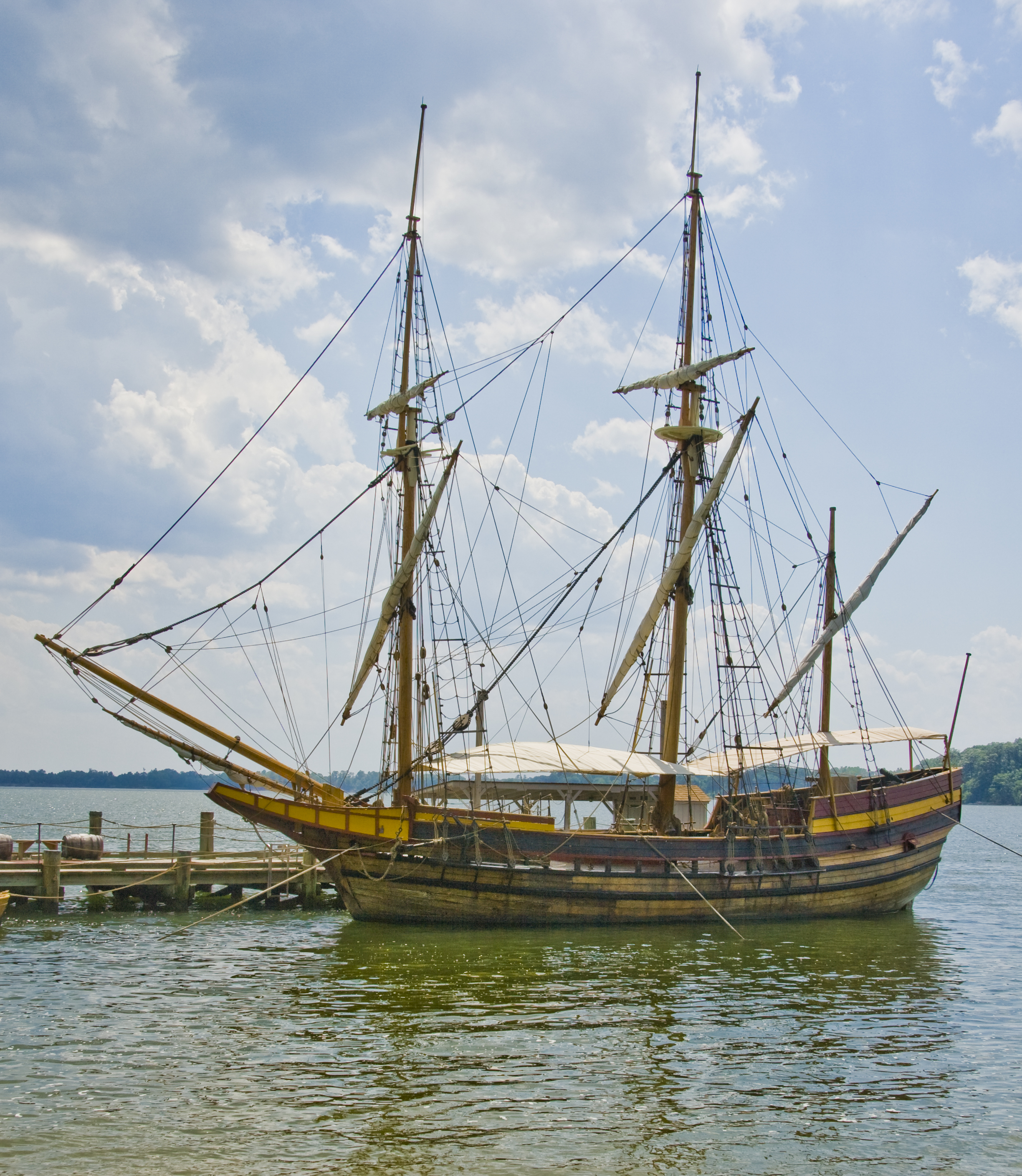|
List Of Newfoundland And Labrador Lieutenant-governors
The following is a list of the governors, commodore-governors, and lieutenant governors of Newfoundland and Labrador. Though the present day office of the lieutenant governor in Newfoundland and Labrador came into being only upon the province's entry into Canadian Confederation in 1949, the post is a continuation from the first governorship of Newfoundland in 1610. Proprietary governors of Newfoundland, 1610–1728 Governors of Plaisance, 1655–1713 Lieutenant-governors of Placentia, 1713–1770 Commodore-governors of Newfoundland, 1729–1825 The Commodore-Governor was a British Royal Navy The Royal Navy (RN) is the United Kingdom's naval warfare force. Although warships were used by Kingdom of England, English and Kingdom of Scotland, Scottish kings from the early medieval period, the first major maritime engagements were foug ... official who was commander of the annual fishing convoy which left England each spring to fish off Newfoundland and was charged with ... [...More Info...] [...Related Items...] OR: [Wikipedia] [Google] [Baidu] |
Lieutenant Governor Of Newfoundland And Labrador
The lieutenant governor of Newfoundland and Labrador () is the Viceroy, viceregal representative in Newfoundland and Labrador of the , who Monarchy in Newfoundland and Labrador, operates distinctly within the province but is also shared equally with the Canadian federalism, ten other jurisdictions of Canada, as well as the other Commonwealth realms and any subdivisions thereof, and resides predominantly in oldest realm, the United Kingdom. The lieutenant governor of Newfoundland and Labrador is appointed in the same manner as Lieutenant governor (Canada), the other provincial viceroys in Canada and is similarly tasked with carrying out most of the monarch's constitutional and ceremonial duties. The current, and 14th lieutenant governor of Newfoundland and Labrador is Judy Foote, who has served in the role since 3 May 2018. Role and presence The lieutenant governor of Newfoundland and Labrador is vested with Lieutenant governor (Canada)#Constitutional, a number of governmental dut ... [...More Info...] [...Related Items...] OR: [Wikipedia] [Google] [Baidu] |
Arthur Aston (governor)
Sir Arthur Aston (died 1627) was appointed Proprietary Governor of Avalon in 1625 by Sir George Calvert, (1579-1632), former Secretary of State for Foreign Affairs to King James I of England (and earlier James VI of Scotland), (later titled first Baron and Lord Baltimore in Ireland and received charter from King Charles I of the Kingdom of England in 1632 just before his death to found colonial Province of Maryland further south along Chesapeake Bay in future United States of America, carried out in 1634 by his eldest son/heir Cecilius Calvert, second Baron and Lord Baltimore, 605-1675 and nephew Leonard Calvert, 606-1647 first provincial Governor of Maryland). Aston was a devout Roman Catholic and was recommended by Father Stout to govern the Catholic colony. Aston arrived in Ferryland, Avalon's capital, around 1626 but returned to England the next year to resign his position and join the forces of the George Villiers, first Duke of Buckingham in France France ( ... [...More Info...] [...Related Items...] OR: [Wikipedia] [Google] [Baidu] |
Richard Cromwell
Richard Cromwell (4 October 162612 July 1712) was an English statesman who was the second and last Lord Protector of the Commonwealth of England, Scotland and Ireland and son of the first Lord Protector, Oliver Cromwell. On his father's death in 1658 Richard became Lord Protector, but lacked authority. He tried to mediate between the army and civil society and allowed a Parliament containing many disaffected Presbyterians and Royalists to sit. Suspicions that civilian councillors were intent on supplanting the army were brought to a head by an attempt to prosecute a major-general for actions against a Royalist. The army made a threatening show of force against Richard and may have had him in detention. He formally renounced power nine months after succeeding. Although a Royalist revolt was crushed by the recalled civil war figure General John Lambert, who then prevented the Rump Parliament from reconvening and created a Committee of Safety, Lambert found his troops melted away ... [...More Info...] [...Related Items...] OR: [Wikipedia] [Google] [Baidu] |
John Treworgie
John Treworgie (born ca. 1618, date of death unknown) was the last Proprietary Governor of Newfoundland. Treworgie had worked as an agent at a Kittery, Maine trading post from 1635 to 1650. In 1651 he was named as one of a party of six sent to Newfoundland to arrest Sir David Kirke who had been accused of withholding taxes collected on behalf of the crown and otherwise violating the royal charter which granted him the governorship of Newfoundland. His party was also ordered to administer the fishery and collect taxes on fish and oil from foreign fishermen. He remained after the arrest of Kirke and was named governor by the English government and given authority over both migratory fisherman and colonists and ordered to fortify the colony. John Treworgie was the son of James Treworgie (or Treworgy), the son-in-law of Alexander Shapleigh, a Devonshire merchant and fisheries owner who founded Kittery, Maine. John Treworgie was the brother-in-law of Hon. John Gilman of Exeter, New Hamps ... [...More Info...] [...Related Items...] OR: [Wikipedia] [Google] [Baidu] |
Oliver Cromwell
Oliver Cromwell (25 April 15993 September 1658) was an English politician and military officer who is widely regarded as one of the most important statesmen in English history. He came to prominence during the 1639 to 1651 Wars of the Three Kingdoms, first as a senior commander in the Parliamentarian army and then as a politician. A leading advocate of the execution of Charles I in January 1649, which led to the establishment of the Republican Commonwealth of England, Scotland and Ireland, he ruled as Lord Protector from December 1653 until his death in September 1658. Cromwell nevertheless remains a deeply controversial figure in both Britain and Ireland, due to his use of the military to first acquire, then retain political power, and the brutality of his 1649 Irish campaign. Educated at Sidney Sussex College, Cambridge, Cromwell was elected MP for Huntingdon in 1628, but the first 40 years of his life were undistinguished and at one point he contemplated emigrati ... [...More Info...] [...Related Items...] OR: [Wikipedia] [Google] [Baidu] |
Newfoundland And Labrador
Newfoundland and Labrador (; french: Terre-Neuve-et-Labrador; frequently abbreviated as NL) is the easternmost province of Canada, in the country's Atlantic region. The province comprises the island of Newfoundland and the continental region of Labrador, having a total size of 405,212 square kilometres (156,500 sq mi). In 2021, the population of Newfoundland and Labrador was estimated to be 521,758. The island of Newfoundland (and its smaller neighbouring islands) is home to around 94 per cent of the province's population, with more than half residing in the Avalon Peninsula. Labrador borders the province of Quebec, and the French overseas collectivity of Saint Pierre and Miquelon lies about 20 km west of the Burin Peninsula. According to the 2016 census, 97.0 per cent of residents reported English as their native language, making Newfoundland and Labrador Canada's most linguistically homogeneous province. A majority of the population is descended from English and Irish ... [...More Info...] [...Related Items...] OR: [Wikipedia] [Google] [Baidu] |
David Kirke
Sir David Kirke ( – 1654), also spelt David Ker, was an adventurer, privateer and colonial governor. He is best known for his successful capture of Québec in 1629 during the Thirty Years' War and his subsequent governorship of lands in Newfoundland. A favourite of Charles I, Kirke's downfall came with that of the Crown during the English Civil War and it is believed he died in prison. Family Kirke was a son of Gervase (Jarvis) Kirke, a rich merchant of the City of London, and Elizabeth Goudon, a French Huguenot woman. He was raised in Dieppe, in Normandy. Also David was the eldest of five sons, followed by Lewis, Thomas, John and James. While still in Engeland, David married to Sara Kirke. They left for Newfoundland in 1638 and had a number of children, including their sons George, David the Younger, and Phillip. Quebec campaign An English fleet, consisting of six warships and three pinnaces, left Gravesend in March 1629 with Jacques Michel, a deserter from Champl ... [...More Info...] [...Related Items...] OR: [Wikipedia] [Google] [Baidu] |
OUR FIRST FOOTING IN CANADA
{{Disambiguation, geo ...
Our or OUR may refer to: * The possessive form of " we" * Our (river), in Belgium, Luxembourg, and Germany * Our, Belgium, a village in Belgium * Our, Jura, a commune in France * Office of Utilities Regulation (OUR), a government utility regulator in Jamaica * Operation Underground Railroad, a non-profit organization that helps rescue sex trafficking victims * Operation Unified Response, the United States military's response to the 2010 Haiti earthquake * Ownership, Unity and Responsibility Party, a political party in the Solomon Islands See also * Ours (other) One Union of Regional Staff (OURS) was a trade union in the United Kingdom. The union was formed in early 2010 by the merger of the Derbyshire Group Staff Union and the Cheshire Group Staff Union. It organises former Derbyshire Building Societ ... [...More Info...] [...Related Items...] OR: [Wikipedia] [Google] [Baidu] |
William Hill (governor)
William Hill (fl. 1630s) was the Proprietary Governor of the Province of Avalon in Newfoundland from 1634 to 1638. He was appointed to the position by Cecil Calvert, 2nd Baron Baltimore. George Calvert, 1st Baron Baltimore had founded the colony and acted as its governor and Cecil Calvert had managed the colony after his father's death but since he was occupied with the Province of Maryland appointed Hill as governor in his stead. Hill remained in the colony, living in Lord Baltimore's house, until the arrival of Sir David Kirke in 1638. Kirke had been granted a Royal Charter A royal charter is a formal grant issued by a monarch under royal prerogative as letters patent. Historically, they have been used to promulgate public laws, the most famous example being the English Magna Carta (great charter) of 1215, but ... over all of Newfoundland and forced Hill to vacate the house and move across the harbour where he stayed until his death. External linksGovernment House ''T ... [...More Info...] [...Related Items...] OR: [Wikipedia] [Google] [Baidu] |
De Facto
''De facto'' ( ; , "in fact") describes practices that exist in reality, whether or not they are officially recognized by laws or other formal norms. It is commonly used to refer to what happens in practice, in contrast with '' de jure'' ("by law"), which refers to things that happen according to official law, regardless of whether the practice exists in reality. History In jurisprudence, it mainly means "practiced, but not necessarily defined by law" or "practiced or is valid, but not officially established". Basically, this expression is opposed to the concept of "de jure" (which means "as defined by law") when it comes to law, management or technology (such as standards) in the case of creation, development or application of "without" or "against" instructions, but in accordance with "with practice". When legal situations are discussed, "de jure" means "expressed by law", while "de facto" means action or what is practiced. Similar expressions: "essentially", "unofficial", " ... [...More Info...] [...Related Items...] OR: [Wikipedia] [Google] [Baidu] |
Cecilius Calvert, 2nd Baron Baltimore
Cecil Calvert, 2nd Baron Baltimore (8 August 1605 – 30 November 1675), also often known as Cecilius Calvert, was an English nobleman, who was the first Proprietor of the Province of Maryland, ninth Proprietary Governor of the Colony of Newfoundland, and second of the colony of Province of Avalon to its southeast. His full title was "First Lord Proprietary, Earl Palatine of the Provinces of Maryland and Avalon in America". He received the proprietorship after the death of his father, The 1st Baron Baltimore (1579 – 15 April 1632), for whom it had been intended. Cecil, Lord Baltimore, established and managed the Province of Maryland from his home, Kiplin Hall, in North Yorkshire, England. As an English Roman Catholic, he continued the legacy of his father by promoting religious tolerance in the colony. Maryland became a haven for Catholics in the New World, particularly important at a time of religious persecution in England. Lord Baltimore governed Maryland for for ... [...More Info...] [...Related Items...] OR: [Wikipedia] [Google] [Baidu] |





